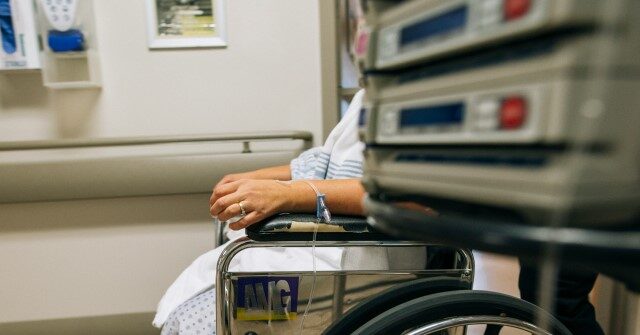Canada is witnessing a remarkable increase in euthanasia, highlighted by the recent report from Health Canada. This fifth annual report on medical assistance in dying (MAID) indicates that euthanasia constituted nearly five percent of all deaths in the country last year, which signifies a notable trend in end-of-life choices among Canadians. The data reveals that 15,343 people were euthanized throughout 2023, marking a 15.8 percent rise from the previous year. The statistics paint a complex picture of the country’s healthcare landscape and suggest growing acceptance and normalization of assisted dying as a viable option for those nearing the end of their lives.
Despite being responsible for public health advocacy, Health Canada’s reports elicit a sense of irony when juxtaposing the agency’s goal of improving population health with the increasing recourse to MAID. The agency expresses a commitment to enhancing the well-being and longevity of Canadians, yet its role in facilitating euthanasia raises ethical questions about the true nature of health improvement. The report emphasizes that strict eligibility criteria exist for MAID, claiming robust safeguards are in place to ensure its responsible application. Critics may argue that these measures can seem contradictory, especially in the context of a healthcare system that promotes life-preserving treatments.
One critical eligibility criterion for MAID requires that a patient must have a natural death that is “reasonably foreseeable.” This clause appears to set a remarkably low bar for those seeking assisted death, unlike many medical standards that generally demand more stringent justifications. The vagueness of this term raises concerns among healthcare professionals and ethicists alike, as it could potentially lead to an expansion of criteria, and ultimately an increase in the number of patients who qualify for euthanasia. The implications of this benchmark warrant careful scrutiny, especially as societal values and healthcare policies continue to evolve.
The report attributes the astonishing rise in euthanasia rates to several influencing factors. Among these are growing social acceptance of MAID, an aging population, shifting patterns of health issues, and the evolving attitudes of healthcare providers. In particular, the endorsement of assisted dying has gained traction within various segments of society, leading to a shift in perceptions about the appropriateness of euthanasia. Additionally, the availability of practitioners trained and willing to perform euthanasia is crucial in this context, as it directly affects patient access to MAID services. With an increasing number of professionals developing expertise in this area, the report notes that a small cohort of 89 practitioners accounted for a significant portion of all MAID cases, raising concerns about the commodification of assisted dying.
Since its legalization in Canada in 2016, the total number of individuals who have chosen euthanasia has reached 60,301, illustrating a profound change in the country’s approach to end-of-life care. This trend reflects not only changing attitudes towards death and dying in Canadian society but also prompts a broader discourse on ethical implications, healthcare practices, and the rights of individuals facing terminal conditions. The data may suggest a shift away from the traditional focus on curative care towards more personalized choices surrounding death, yet it simultaneously raises pressing ethical considerations regarding the role of healthcare providers as facilitators of assisted dying.
In conclusion, as Canada navigates the complexities surrounding euthanasia, ongoing discussions will likely force stakeholders to confront the nuanced implications of MAID. Balancing the right to choose with ethical considerations surrounding healthcare practices remains a focal point for healthcare professionals, policymakers, and society at large. The increasing adoption of assisted dying as an option for end-of-life care calls for a reevaluation of health priorities, ethical frameworks, and the foundational principles that guide healthcare in the country, ensuring that the dignity and autonomy of individuals are upheld alongside the commitment to preserving life.

